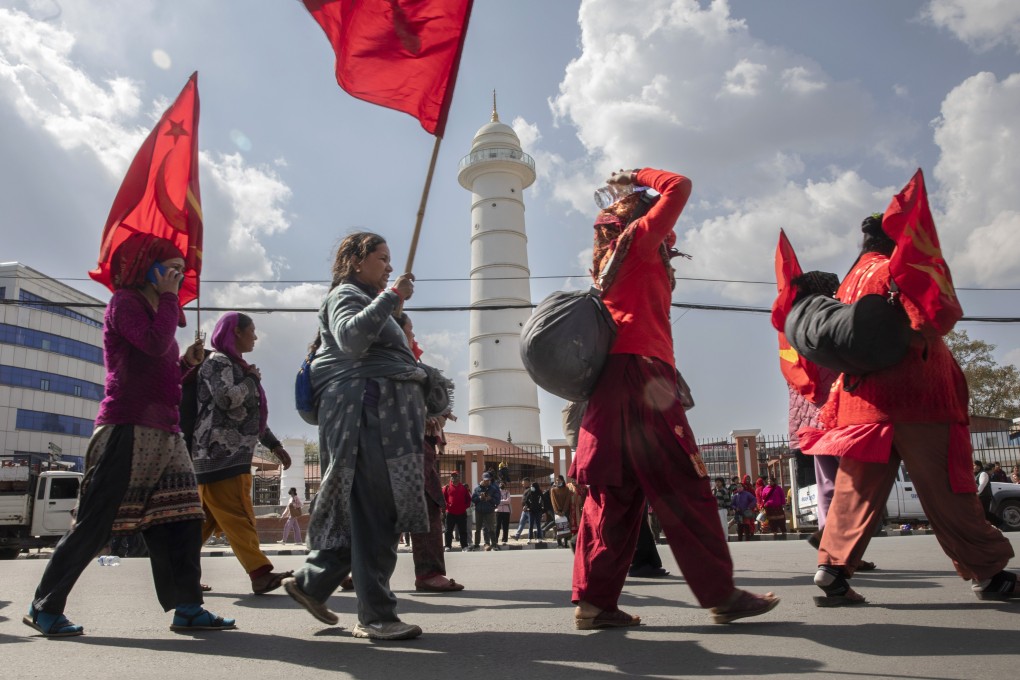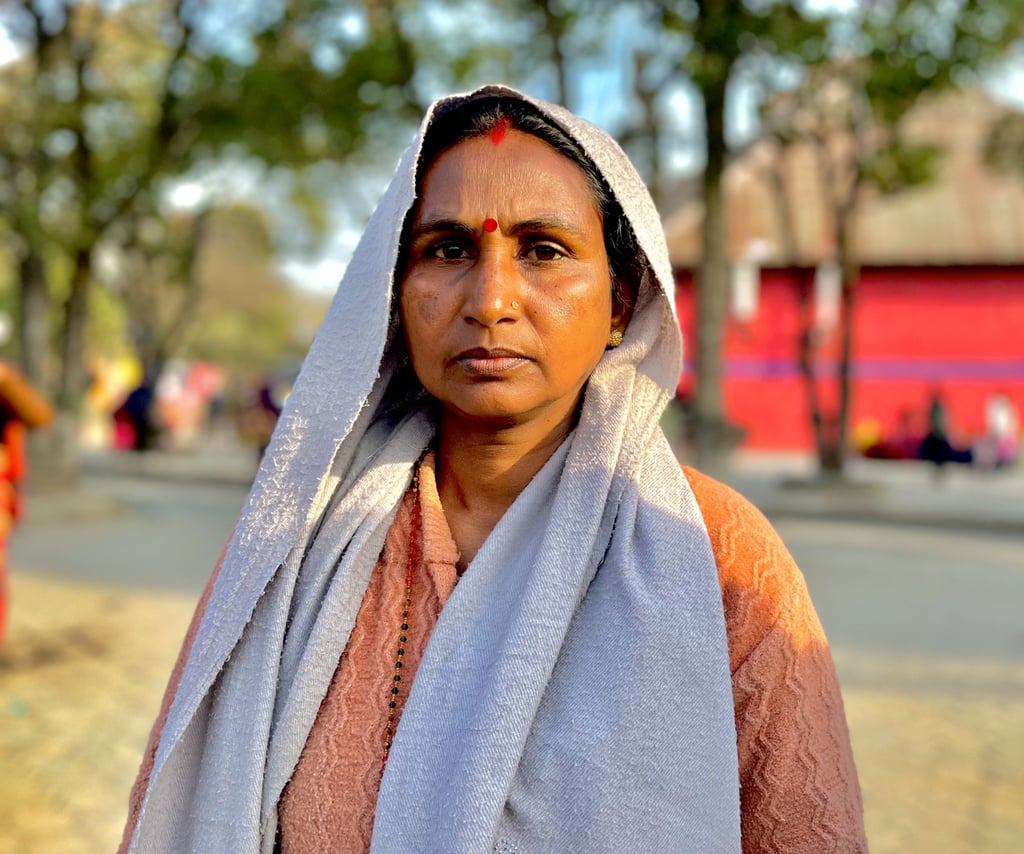Nepal loan shark victims make 23-day march for justice: ‘they cheat, exploit people like us’
- Many people in rural regions lack access to financial institutions and bank loans, leaving them at the mercy of ‘predatory’ money lenders
- Borrowers are often trapped into a lifetime of liability, and advocates say a new law to ban ‘unfair transactions’ is stunted by corruption

Two years ago, Nirmala Thakur’s family desperately needed money for a medical emergency.
She rushed to a local money lender to borrow 200,000 rupees (US$1,500), only to find out later that the man had tricked her into signing a second document for an amount 10 times higher. Thakur and her husband have since sold their house, but still have not repaid the loan they took for their son’s treatment.

Thakur is among more than 1,000 debtors waging a peaceful protest campaign against unscrupulous lenders in Kathmandu, many of them farmers from the southern Terai plains. The victims gathered in eastern and western corners of Nepal and walked for 23 days in the “march for justice” campaign, reaching the capital on February 21 in an attempt to convey the government to act against exploitative lenders.
Many rural residents in Nepal turn to local money lenders due to limited access to financial institutions and complex loan process in banks. The lenders often end up taking advantage of desperate situations and illiteracy, either by charging borrowers high interest rates that multiply quickly, or deceiving them into signing documents with higher principal amounts.
“The current protests reflect the unequal power relations across the borrowers and lenders, which are often predatory,” said Mishra, an associate professor at Stetson University in the United States.